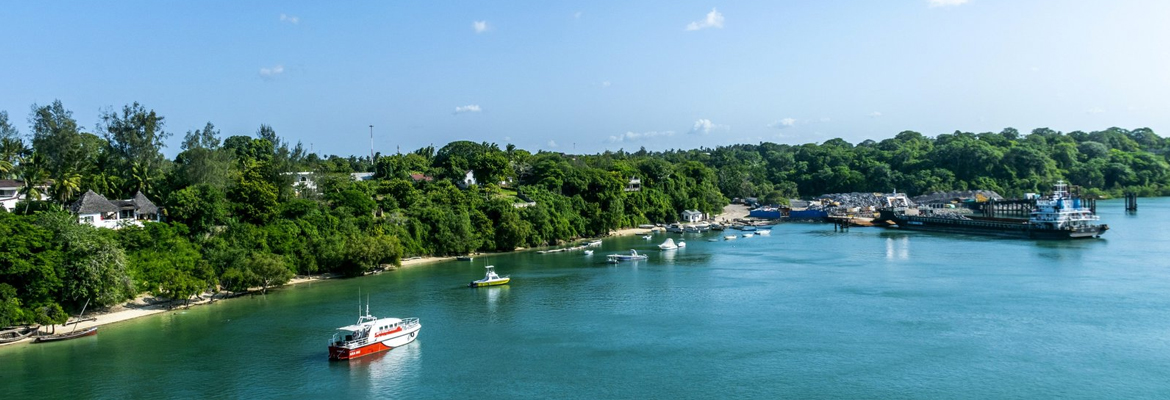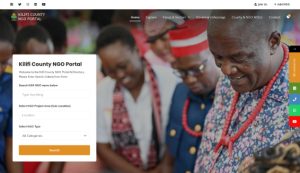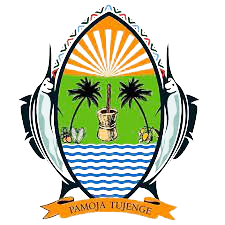Karibu kwenye Idara ya Maji

Kilifi Department of Water, Environment, Climate Change & Forestry, our dedication lies in enhancing the quality of life in Kilifi County through sustainable water management, environmental conservation, and climate action. Our mission is to ensure the responsible management of water resources, safeguard our natural environment, and tackle the challenges of climate change with innovative solutions. We are committed to fostering a resilient and sustainable community by promoting efficient water use, protecting vital ecosystems, and implementing effective climate adaptation and mitigation strategies.
We believe in the power of community involvement and encourage residents to actively participate in our initiatives. Through partnerships, public consultations, and educational programs, we aim to empower individuals and organizations to contribute to a greener, more sustainable Kilifi.
Our vision is to be a leading department in advancing sustainable water management, environmental conservation, and climate resilience, ensuring a healthier and more sustainable future for all.
VISION
To be a Safe and Healthy Environment for Wealth Creation
MISSION
Protection, Conservation and Sustainable management of the environment and natural resources.
CORE VALUES
- Honesty, Integrity and prudent use of pub lic resources Team work and appreciation for diversity Environmental Sustainability
- Good Governance, Transparency and accountability
- Equity, inclusive people-driven leadership
- Use of ICT and Innovation
- Hardworking
- Harmonious & Peaceful coexistence
Kilifi County is at the forefront of addressing the impacts of climate change, recognizing the urgent need for a comprehensive and actionable plan that safeguards our environment, economy, and communities. The Climate Change Action Plan is a strategic framework designed to mitigate the effects of climate change, enhance adaptive capacity, and ensure sustainable development across the county.
1. Mitigation Strategies
Reducing Greenhouse Gas Emissions
A core component of Kilifi’s Climate Change Action Plan is the reduction of greenhouse gas (GHG) emissions across key sectors. The county is committed to transitioning to a low-carbon economy through several targeted initiatives:
Renewable Energy Expansion
We are investing in solar, wind, and biogas energy projects to reduce reliance on fossil fuels. The promotion of renewable energy sources not only cuts down emissions but also provides sustainable power solutions for rural and urban areas alike.
Energy Efficiency Programs
To further decrease energy consumption, the county is implementing energy efficiency standards in buildings, transportation, and industry. Incentives for adopting energy-saving technologies are provided to both businesses and households.
Sustainable Transportation
We are promoting the use of public transport, electric vehicles, and non-motorized transport options such as cycling and walking. Infrastructure development is underway to support these sustainable transportation methods.
Waste Management Improvements
Enhanced waste management practices, including waste segregation, recycling, and the development of waste-to-energy facilities, are being implemented to reduce methane emissions from landfills.
2. Adaptation and Resilience
Preparing for Climate Impacts
Recognizing the vulnerabilities of Kilifi County to climate change, the action plan emphasizes adaptation strategies to enhance the resilience of communities, ecosystems, and infrastructure:
Climate-Resilient Agriculture
To support farmers in adapting to changing climate conditions, we are promoting climate-smart agricultural practices. These include drought-resistant crops, efficient irrigation systems, and soil conservation techniques.
Water Resource Management
The plan includes measures to safeguard water resources through sustainable water management practices, rainwater harvesting, and the protection of watersheds. Ensuring reliable water supply is crucial in the face of unpredictable rainfall patterns and prolonged droughts.
Coastal Protection
Given Kilifi’s extensive coastline, we are implementing coastal protection measures such as mangrove restoration, the construction of seawalls, and the management of coastal ecosystems to reduce the impact of rising sea levels and coastal erosion.
Disaster Risk Reduction
The county is enhancing early warning systems and disaster preparedness plans to respond effectively to extreme weather events. Community-based adaptation programs are also being introduced to empower residents with the knowledge and tools needed to cope with climate-related disasters.
3. Community Engagement and Capacity Building
Involving All Stakeholders
The success of the Climate Change Action Plan relies on the active participation of all stakeholders, from government bodies to local communities and the private sector. Key initiatives include:
Public Awareness Campaigns
We are conducting widespread awareness campaigns to educate residents about the impacts of climate change and the importance of adopting sustainable practices. Schools, community groups, and media outlets are integral to these efforts.
Training and Capacity Building
The county is providing training programs to enhance the capacity of local leaders, farmers, and businesses in climate change adaptation and mitigation. These programs are designed to equip stakeholders with the skills and knowledge needed to implement effective climate actions.
Collaboration and Partnerships
We are forging partnerships with national and international organizations, NGOs, and the private sector to leverage resources, share expertise, and coordinate efforts in combating climate change.
4. Policy and Governance
Strengthening Institutional Frameworks
Effective governance and strong policies are essential to the implementation of the Climate Change Action Plan. The county is committed to:
Policy Integration
Climate change considerations are being integrated into all relevant county policies and development plans. This ensures a holistic approach to addressing climate impacts across all sectors.
Monitoring and Evaluation
A robust monitoring and evaluation framework is in place to track progress, assess the effectiveness of initiatives, and make necessary adjustments. Regular reporting and transparency are key components of this framework.
Legislative Support
The county is working to enact and enforce legislation that supports climate action, including regulations on emissions, land use, and environmental protection.
5. Financing Climate Action
Securing Sustainable Funding
Achieving the goals of the Climate Change Action Plan requires substantial financial investment. Kilifi County is exploring various funding mechanisms to support climate initiatives:
Government Funding
Allocations from the county budget are directed towards climate projects, with a focus on both mitigation and adaptation measures.
International Grants and Aid
The county is actively seeking grants and technical assistance from international donors, climate funds, and development agencies to finance large-scale climate initiatives.
Public-Private Partnerships
Partnerships with the private sector are being established to mobilize resources and expertise. These collaborations are essential for the implementation of innovative climate solutions.
Community-Based Funding
Local communities are encouraged to participate in climate action through community-based financing models, such as savings groups and cooperatives that support small-scale adaptation projects.
Kilifi County’s Climate Change Action Plan is a comprehensive roadmap for addressing the urgent challenges posed by climate change. By focusing on mitigation, adaptation, community engagement, governance, and financing, the plan aims to create a resilient, sustainable, and prosperous future for all residents. The commitment to continuous improvement and collaboration ensures that Kilifi County will remain at the forefront of climate action, setting an example for other regions to follow.
Forestry and land use policies are critical for the conservation of Kilifi’s forests and the sustainable management of land resources. These policies aim to prevent deforestation, promote reforestation, and ensure that land is used in ways that are ecologically and economically sustainable.
Reforestation and Afforestation Initiatives
The county implements policies that encourage reforestation and afforestation efforts. Incentives are provided for tree planting on both public and private land, and community participation is actively promoted.
Sustainable Land Use Planning
Land use planning policies are designed to ensure that land development is conducted in an environmentally responsible manner. Zoning regulations and land use plans are enforced to prevent over-exploitation and degradation of natural resources.
Forest Management and Conservation
Kilifi County enforces policies for the sustainable management of its forest resources. These policies include guidelines for logging, the protection of indigenous tree species, and the management of community forests. The county also works closely with local communities to develop and implement forest management plans.
5. Enforcement and Compliance Mechanisms
Ensuring Adherence to Environmental Standards
For the effective implementation of these regulations and policies, Kilifi County has established strong enforcement and compliance mechanisms. These mechanisms are designed to monitor activities, ensure adherence to regulations, and take corrective actions when necessary.
Regulatory Agencies and Monitoring
The county has established regulatory agencies responsible for monitoring compliance with environmental, water, climate, and forestry regulations. These agencies conduct regular inspections, audits, and assessments to ensure that all stakeholders adhere to established standards.
Community Involvement in Enforcement
Recognizing the importance of community involvement in environmental management, the county encourages community participation in monitoring and reporting non-compliance. Community-based organizations and local leaders play a key role in enforcing regulations at the grassroots level.
Penalties and Legal Action
Non-compliance with regulations is met with penalties, including fines, suspension of licenses, and, in severe cases, legal action. The county’s legal framework provides for swift and effective enforcement to deter violations and promote responsible behavior.
Kilifi County’s commitment to environmental stewardship is reflected in its comprehensive regulations and policies. These frameworks ensure that natural resources are managed sustainably, climate resilience is enhanced, and economic activities are aligned with environmental goals. By adhering to these policies, the county aims to protect its natural heritage, support sustainable development, and improve the quality of life for all its residents.
Departmental Goals, Objectives And Strategies
The goals, objectives and strategies of the department are given in the table as follows:
The Department of Water, Environment, Climate Change & Forestry in Kilifi County prioritizes the use of accurate and up-to-date data to guide its policies, programs, and initiatives. The availability of comprehensive reports and data not only ensures transparency and accountability but also empowers stakeholders, including residents, researchers, and policymakers, to make informed decisions that contribute to the county’s sustainable development goals.
1. Environmental Impact Reports
Monitoring and Mitigating Environmental Impacts
The Department conducts regular Environmental Impact Assessments (EIA) and generates detailed reports on the potential and actual impacts of development projects on Kilifi’s environment. These reports provide valuable insights into the effectiveness of mitigation measures and are used to refine regulations and policies.
EIA Reports
These documents assess the potential environmental risks associated with proposed projects and outline necessary mitigation strategies to minimize negative impacts. They are a critical tool for ensuring that development activities align with the county’s sustainability goals.
Environmental Monitoring Reports
Post-implementation monitoring is conducted to evaluate the ongoing impact of projects on the environment. These reports help in ensuring compliance with environmental regulations and the effectiveness of implemented mitigation measures.
2. Water Resource Data
Ensuring Sustainable Water Management
Comprehensive water resource data is collected and analyzed to support the sustainable management of Kilifi County’s water resources. This data is crucial for planning water distribution, assessing the impacts of climate change on water availability, and implementing conservation strategies.
Water Quality Reports
Regular testing and monitoring of water sources across the county provide detailed reports on water quality. These reports help identify pollution sources, assess the effectiveness of water treatment processes, and ensure that residents have access to safe drinking water.
Hydrological Data
This includes data on rainfall patterns, river flows, and groundwater levels, which is essential for managing water resources, especially in the context of climate change. Hydrological reports support the planning of irrigation systems, flood control measures, and drought preparedness strategies.
3. Climate Change Data and Reports
Adapting to a Changing Climate
The Department collects and publishes data on climate change indicators, including temperature trends, rainfall variability, and the frequency of extreme weather events. This data is vital for developing strategies to adapt to and mitigate the impacts of climate change in Kilifi County.
Climate Risk Assessments
These reports analyze the vulnerability of various sectors, such as agriculture, water resources, and infrastructure, to climate-related risks. The assessments guide the county in prioritizing adaptation measures and allocating resources effectively.
Greenhouse Gas Emissions Reports
The Department tracks and reports on the county’s greenhouse gas emissions, identifying key sources and recommending strategies for emission reduction. These reports contribute to the county’s efforts to transition to a low-carbon economy.
4. Forestry and Natural Resource Data
Promoting Sustainable Resource Use
Data on forest cover, biodiversity, and the exploitation of natural resources is critical for the sustainable management of Kilifi’s natural assets. The Department publishes reports that track changes in forest cover, monitor biodiversity, and assess the sustainability of resource extraction activities.
Forest Cover Reports
These reports provide detailed analysis of changes in forest cover, identifying areas of deforestation and afforestation. They are used to guide reforestation efforts and enforce regulations aimed at protecting forested areas.
Biodiversity Reports
Data on species diversity, habitat conditions, and conservation status are collected and reported to support the county’s biodiversity conservation strategies. These reports help prioritize conservation actions and monitor the effectiveness of existing measures.
5. Annual Performance Reports
Tracking Progress and Accountability
The Department publishes annual performance reports that detail the progress made in achieving its mandates and objectives. These reports provide a comprehensive overview of the Department’s activities, achievements, challenges, and future plans.
Annual Departmental Reports
These documents summarize the Department’s key activities, including policy implementation, project outcomes, and financial performance. They are an essential tool for ensuring transparency and accountability to the public and stakeholders.
Project Evaluation Reports
Specific projects are evaluated to assess their impact, efficiency, and sustainability. These reports provide valuable lessons that inform future projects and help improve the Department’s overall effectiveness.
6. Community Engagement Data
Empowering Communities Through Information
The Department is committed to involving the community in its activities and ensuring that residents have access to relevant information. Reports on community engagement efforts and data collected from public consultations are published to keep the public informed and involved.
Public Consultation Reports
These reports summarize the feedback received from residents during public consultations on various projects and policies. They highlight the concerns and suggestions of the community, ensuring that their voices are heard in the decision-making process.
Community Survey Data
Surveys are conducted to gather data on public perceptions, needs, and satisfaction with the Department’s services. This data is used to tailor services to better meet the needs of the community and improve overall service delivery.
Kilifi County’s Department of Water, Environment, Climate Change & Forestry is committed to using data-driven approaches to achieve sustainable development. By publishing comprehensive reports and data, the Department ensures transparency, accountability, and informed decision-making. These resources are essential for tracking progress, assessing impacts, and engaging the community in the stewardship of Kilifi’s natural resources.








